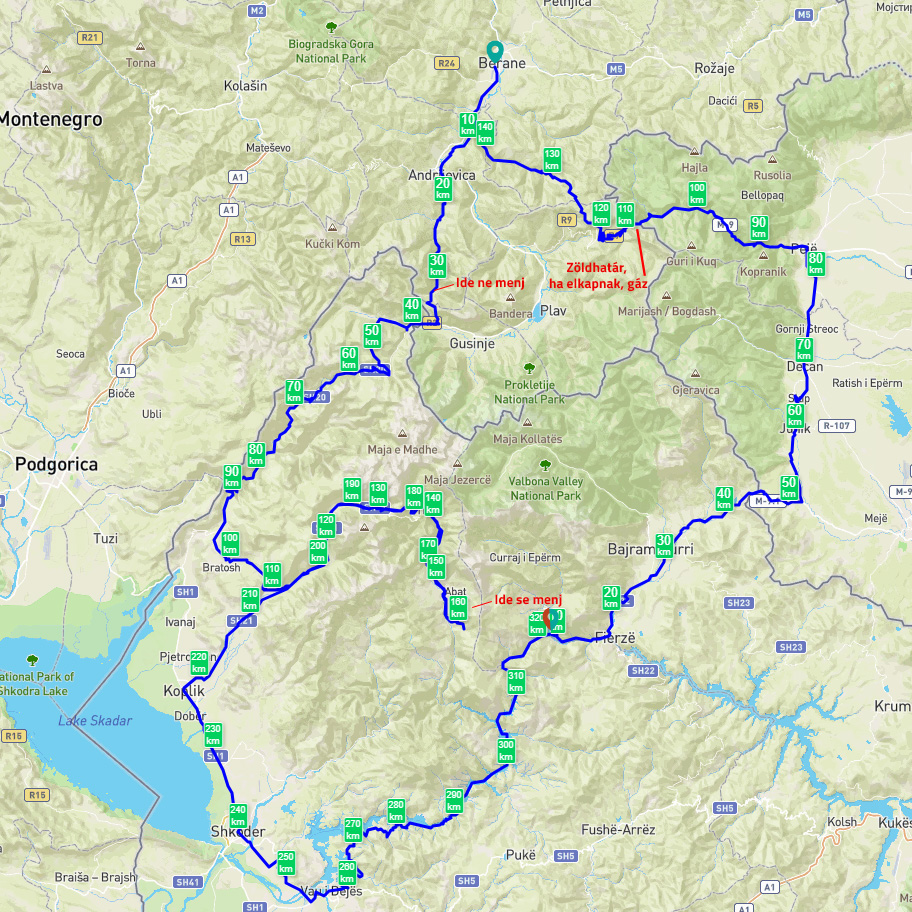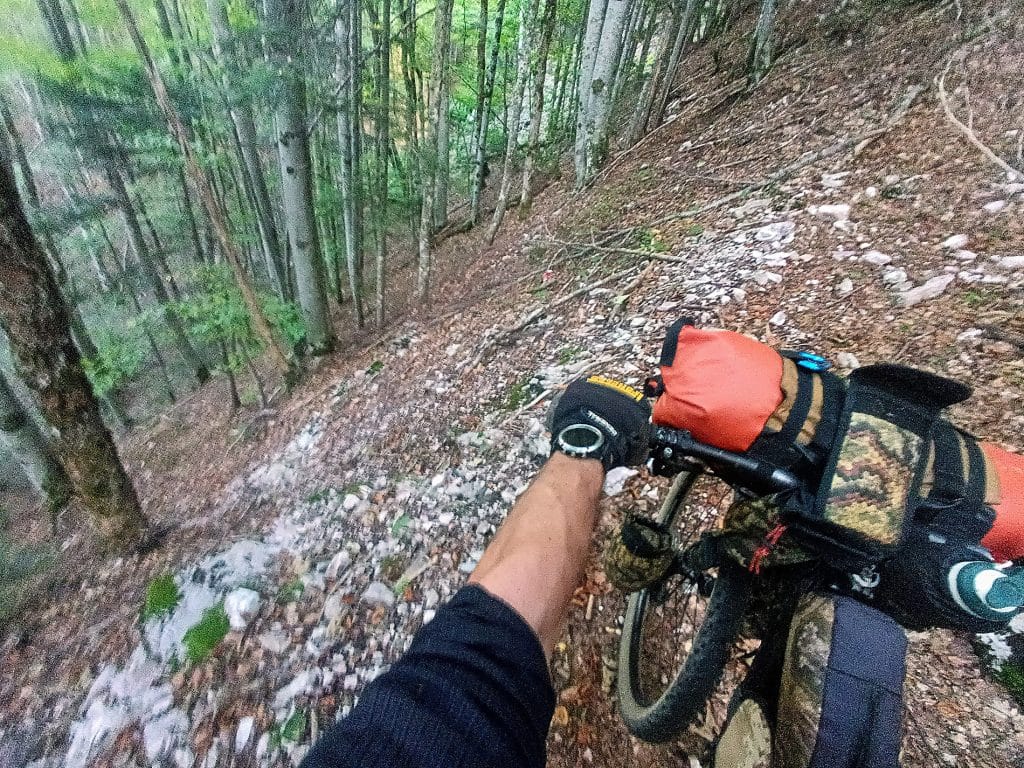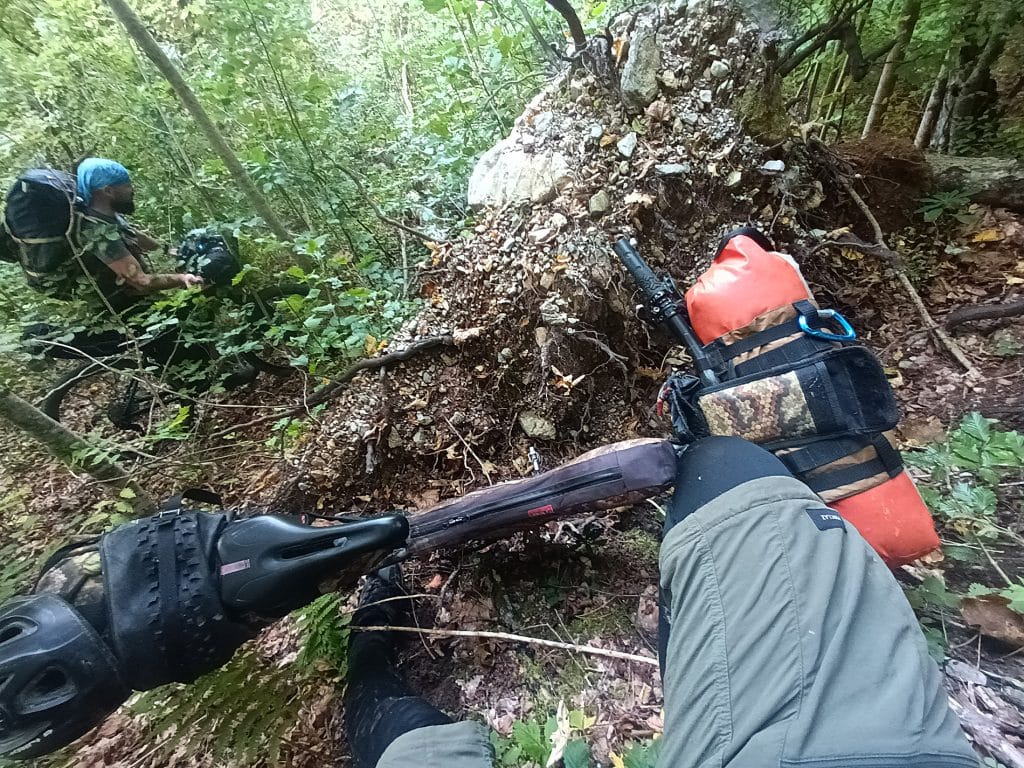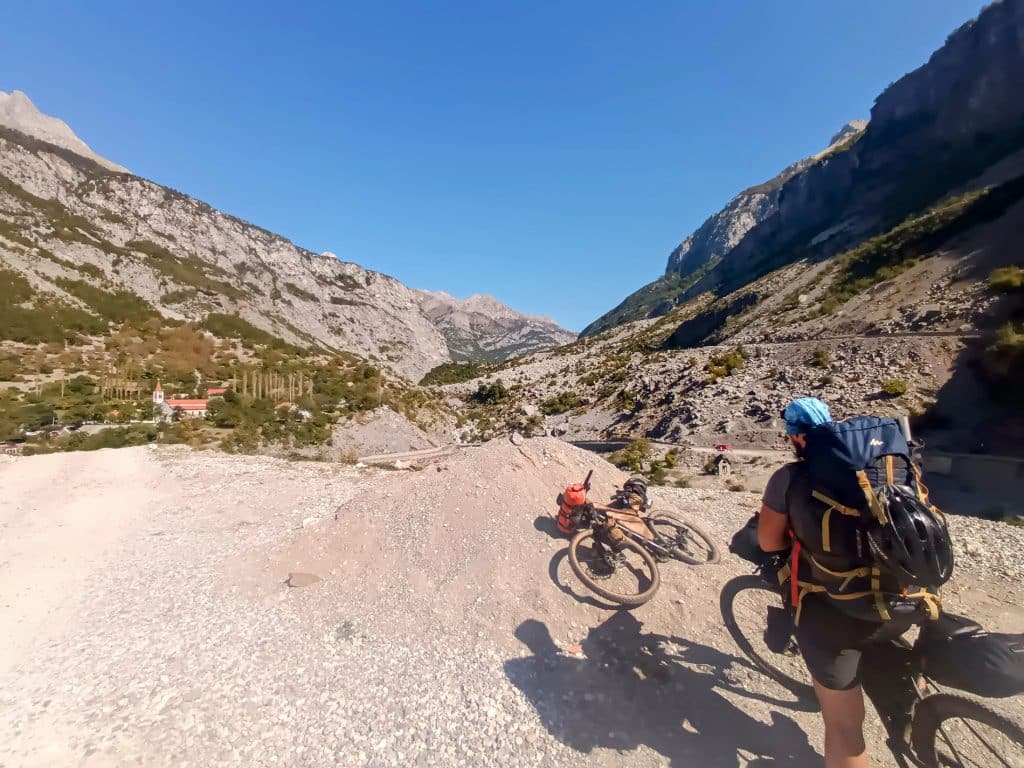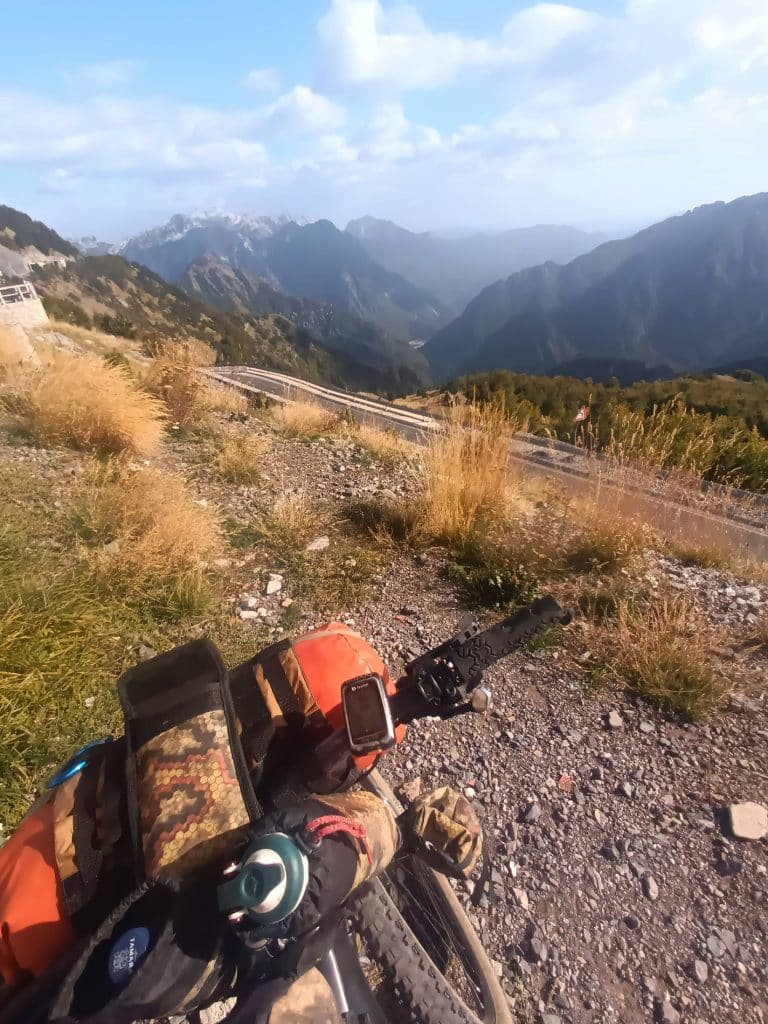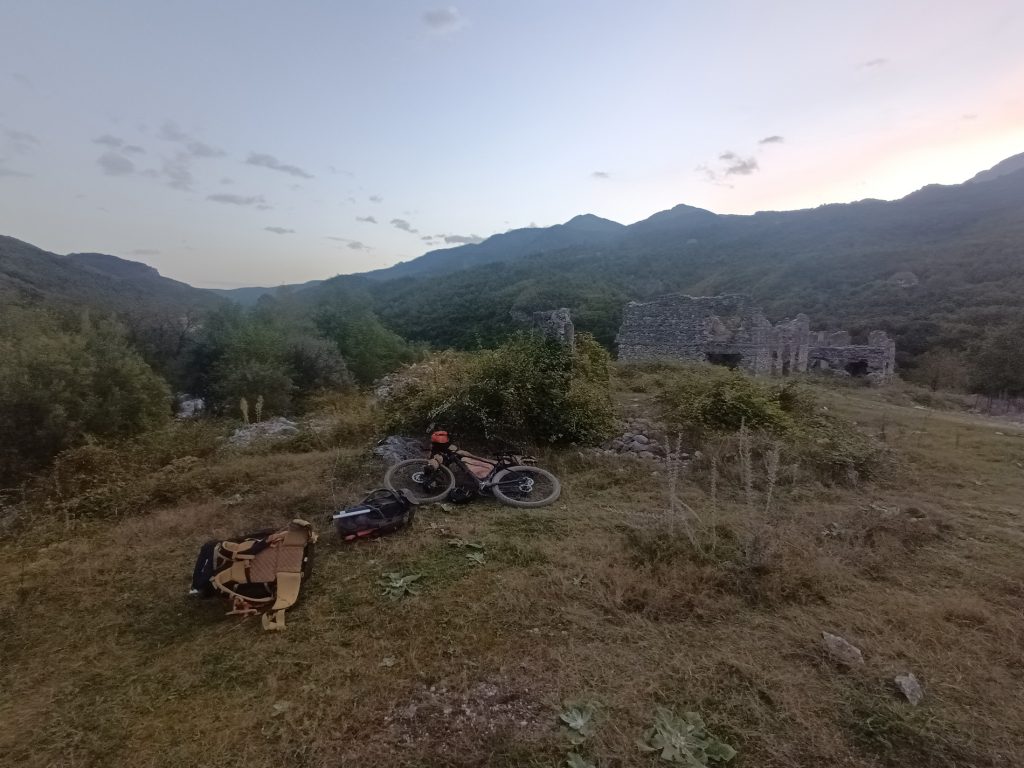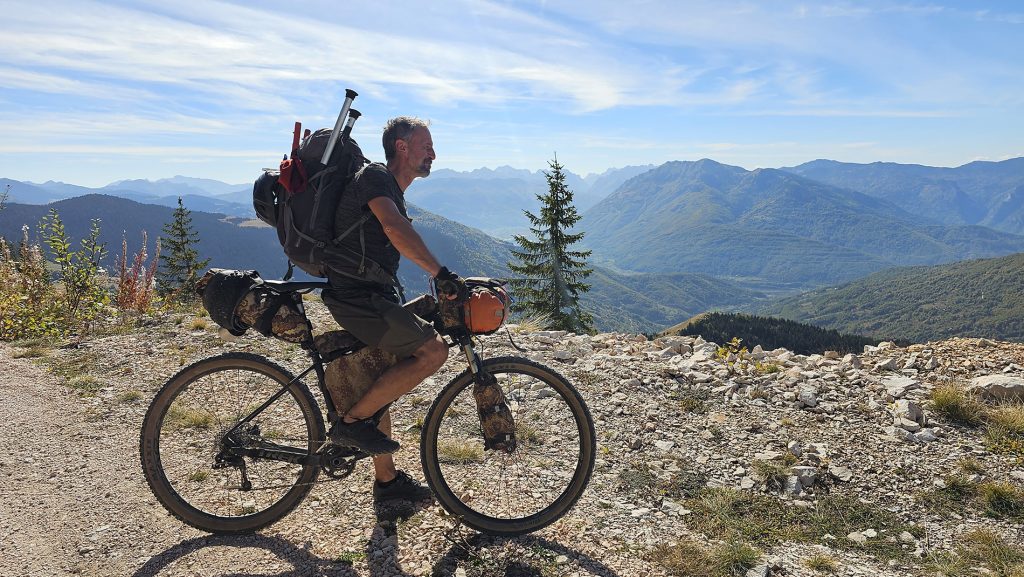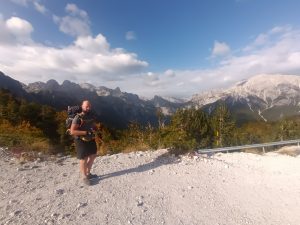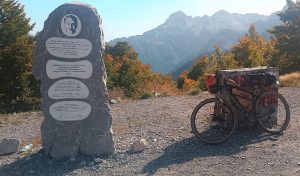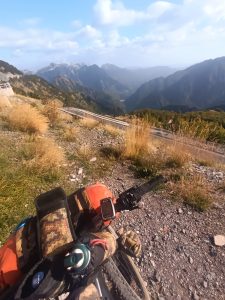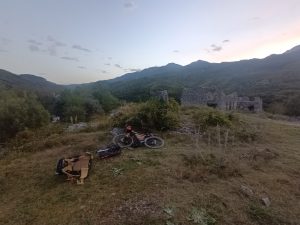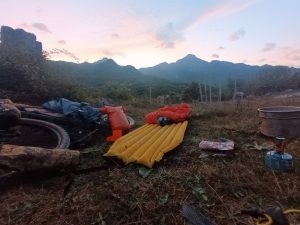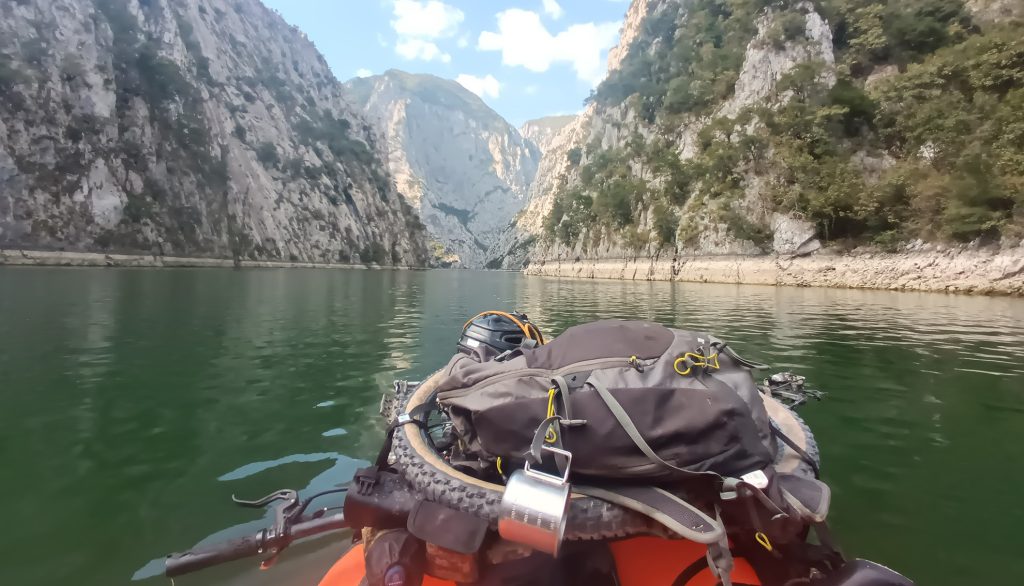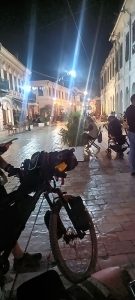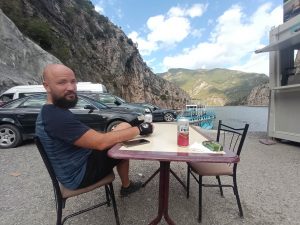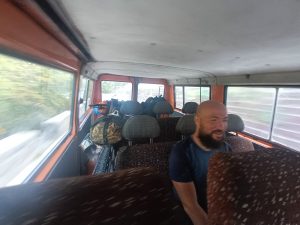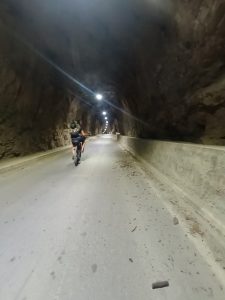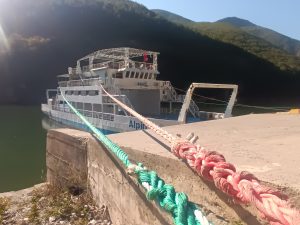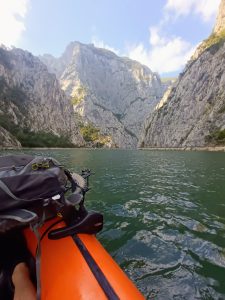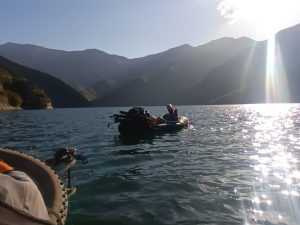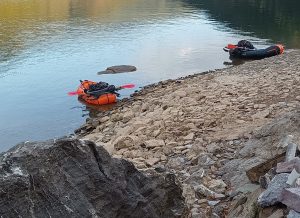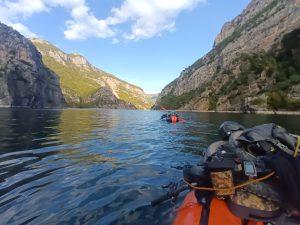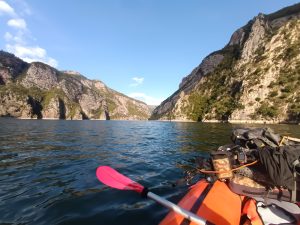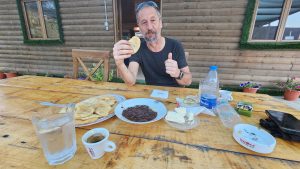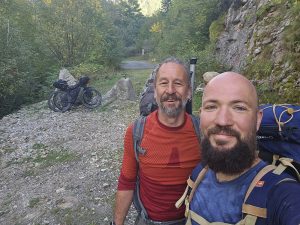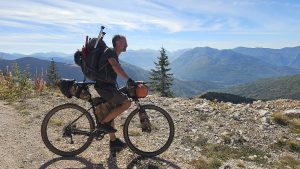Nincsenek termékek a kosárban.
I think I have become addicted to Albania. This is my third time cycling and paddling here and I can't get enough of it. The diversity of the landscape, the hospitality, the many contingencies, the simplicity, the exotic make this country familiar to foreigners, and even homey. OK, this is a personal opinion, but anyone who is even a little fan of Transylvania or Georgia will understand very quickly what I'm talking about.
It's slowly becoming natural that I don't even get on the bicycle without a packraft, and I also organize the tours in such a way that there is as much time for rowing as possible. I've been planning this tour for a while, and everything finally came together around the middle of October. With Bala in the car, the final destination was Montenegro, then with the loaded bikes and the boat on our backs, we headed towards the only official border with Albania in the north.
According to Locus, a steep but super marked Montis route awaited us. Yeah. Even the oars were brought out so that we could make our way in the jinja, not to mention the fallen trees, the untraceable, untraveled road.
We made it through the difficulty, but we didn't cross the border anymore, it got dark, we found water and some flat ground to sleep at a quarry. The only inconvenience of autumn-winter hikes is that it gets dark quickly, and if you bivouac, it's worth looking for a place to rest before it gets completely dark. Instead, we sleep around 10, at least we get some rest. As usual, we have a lot of dried food, which only needs water, and some Caesar bacon, which is good for everything, even on its own.
Depending on the terrain, we traveled 60-120 km per day. On the second day after crossing the border, we headed towards Teth. It got dark well before the pass, and once we got lost in the maze of small mountain villages. It so happened that we spent the night in a cemetery. Here, all pastures, gates, and cemeteries are surrounded by waist-high stone walls. We didn't want to wake up to sheep grazing the sleeping bag, the cemetery seemed quite peaceful. Dinner is soup, tomato goulash, or, for the more daring, Újház cherry soup;) Get up at dawn, have a few bites of cheese and bacon, and then set off.
The road surfaces marked differently on the map did not really reflect reality, but we slowly reached the national road leading to Teth. It's only up from here. The characteristic of the Albanian Alps is that all the passes go high, while the valleys drop back to around 200 m. Progress is an experience.
The pass takes you above 1,800, then a cloudless roll to Teth. You can't really find classic cities in this part of Albania, there weren't any worth mentioning here either, so we continued on. The road takes you next to a beautiful gorge, although it is unnecessary to point this out, since every road here leads you next to a beautiful gorge. Or, of course, run up a pass. We ran out of asphalt, we drove on crushed stone, between abandoned houses. Our accommodation was also next to a larger ruined gate. The next day, hoping to be on the water that day, we jumped into the saddle early. Our joy did not last long, we drove on an increasingly wild road, following the blue sign, and then it continued with an impassable section. Finally we decided to turn back. It wasn't a pleasant decision, I was also annoyed by the absence of a day and a half. Back to Teth, there a van threw us up on the top of the pass, at least we gained that much time. Then we rolled all the way to Shkoder.
It would have been a shame to miss this, a small town of 50,000 people with a wonderful, bubbly atmosphere, with plenty of pubs and cafes. We loaded up on a good portion of roast meat, then set off to find a place to stay. We found a place to spend the night at the temporary accommodation for abused women, whatever, it's long:) We wandered the streets of the city a little more, but we didn't dive into the night. We got up for the muezzin around half past six in the morning, packed up, and headed for the Drin valley.
We started our packraft adventure from the Koman ferry terminal. Several people tried to convince us that the ferry would no longer go, and then that these boats were small here, but we just smiled, asked for a beer and two bureks, inflated and loaded the boats, and we were already on the water, the much to the surprise of the port peoples. In case of trouble, we were even given a phone number for traveling.
We rowed about 13 km in a pleasant, warm tailwind, so we reached Skevin's "port" even after dark. The harbor pub was run by an older couple and their daughter. We drank a lot of beer and even wanted to drink brandy. The evening ended with listening to music, we took turns listening to Albanian and Hungarian folk music. Since we didn't speak any common language, it was music. We slept on the terrace that day, and packed everything in good time in the morning. That's when the surprise came: our hosts treated us to a divine breakfast, small flambés, fig jam and fresh cheese. Recharged and happy, we started the next stage, which took us to Lekbibaj.
The dammed gorge of the Drin is beautiful, we travel along a narrow gorge, between huge, bare rocks. There is not much flow in it due to the damming, but where it narrows, you can feel it. We rowed from the bottom up. The wind was not our friend either, it was blowing strongly in the face, with stormy gusts. It was difficult, but we made progress. If you stopped rowing for a while, say to take a photo, you immediately found yourself several meters behind. It was an all-day fight at its best.
We couldn't wait to reach the port of Lekbibaji, which was nothing more than a collapsed sandbank and an untraveled dirt road. No pub, no burek. We loaded up from the shore, threw everything down, and then decided to just roll into the village for a well-deserved beer. This village does not have the usual structure here either, there was, say, a 250m level between the two ends. Apparently the shop, or whatever we call it, is at the top end. We just caught the grumpy aunt with the headlamp, who was already making her way outside. Chocolate mountains, chocolate croissants, lots of beer, and we even asked for raki to be safe - that's what they call brandy around here. The aunt took out a 30-liter marble jug and filled it. We were amazed. We drank it.
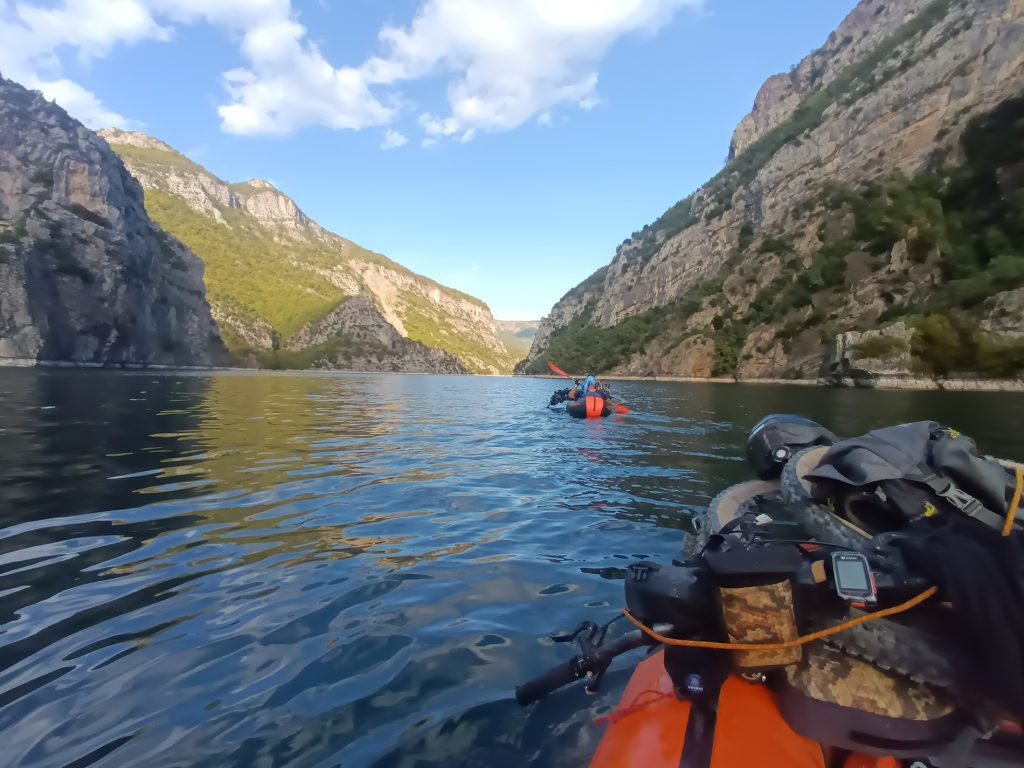
Sleeping on the beach is already routine, packing in the morning took a little longer, the things were still drying. We didn't make good progress later either, now heading towards Kosovo, we quickly decided to drink something more like this in the morning, if it was a rest day. Of course, we drove a good hundred to Peja.
Kosovo, on the other hand, surprised me. Sparkling life, plenty of shops, the bustling city of Peja exceeded all our expectations. We expected something different. The only reminder of the tension was the NATO helicopter constantly circling over the city. This apparently left the locals completely cold. We didn't want to spend too much time in Kosovo, so we headed towards the Montenegrin border even early in the evening.
To the east of Peja, a narrow and winding mountain road took me to the border, through a beautiful gorge even in the dark. There was a lot of traffic, we didn't like it so much, but the light of the car lights in the hairpin bends revealed beautiful details of the rocky stream valley. We found the ideal bivouac site with a small detour, in the shadow of a truck. We were hoping to leave earlier than his owner, and it worked out.
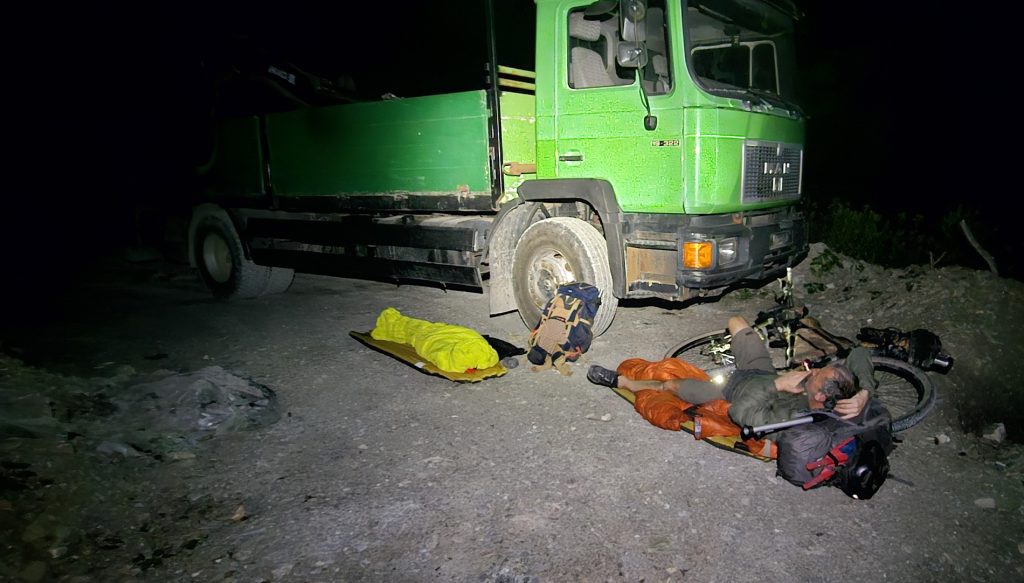
During the mapping the night before, it started to become suspicious that there would not be a normal border here, which we had seen as a continuous road until now, was interrupted at a section the size of a rabbit's tail. Anyway, we were already there, so after some deliberation we crossed into Montenegro. We rolled uphill, and even threw in a quick coffee. It turns off a good distance from the road. That's when we ran into the patrol. There was no question about where we came from, so they wanted to turn us back. After some head-scratching and looking at the map, they also realized that we should take a detour, seeing the lot of stuff and our skinned figure, they let us go. They were fine.
Relieved, we turned right onto the first good dozer road, since the car was no more than 60 kilometers away, and the road only went downhill from there. Montenegro is also worth a separate tour, we went through such beautiful places.
This is how the adventure ended, we finished the tour a day earlier than I expected, but you always have to leave this much safety margin. If they sent me back from the border, that day would have been there too.
A few facts about Albania
- You are safe, people are nice and helpful
- Young people speak English, older people prefer Italian, or German, or nothing at all
- You can also pay in euros, but mostly in cash
- It is not particularly cheap, at least it has become more expensive in a few years
- Where there is a road, it is usually of very good quality
- Beautiful
- Go to Albania
